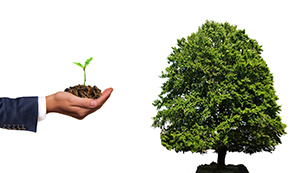 Do your days follow an organic rhythm, or does your life seem to resemble a schedule more than a life? Technological gadgets, continually getting faster and more accessible, can affect the tempo of our daily life – do you find yourself conditioned to expect instant responses, resulting in impatience even when the passage of time is necessary or appropriate?
Do your days follow an organic rhythm, or does your life seem to resemble a schedule more than a life? Technological gadgets, continually getting faster and more accessible, can affect the tempo of our daily life – do you find yourself conditioned to expect instant responses, resulting in impatience even when the passage of time is necessary or appropriate?
Impatience can cause unwholesome reactions of irritation, anger or frustration to arise. Are you treating time as a friend or an enemy? Some years ago I was in a taxi in Madras, India and I noticed that written in the red traffic lights was the word “Relax”. What a great reminder.
Khanti is the Pali term for patience or forbearance. It is a virtue to cultivate. It’s not exciting or dramatic like rapture, jhāna, or realization. Nevertheless, we must often wait for things, and we can learn to do so without creating suffering. You might be waiting for exam results, professional board test results, results of biopsies or other medical tests – are you calm and at ease in the waiting, or is your mind preoccupied by worry, dread, hope, worst case scenarios, idealistic fantasies?
Perhaps you have recognized that an arbitrary time line cannot be imposed on the development of samādhi or insight. You may have realized that when you sit, you need patience and endurance as you wrestle with hindrances, as you learn to steady your mind on the breath. In the same way, you can accept that daily activities and circumstances also require patience and endurance. Pain, illness, and the actions of other people are usually beyond our control; learning to patiently endure them protects our minds from unwholesome states. The Buddha taught that some troubles are best dealt with by enduring:
“… a bhikkhu, reflecting wisely, … endures ill-spoken, unwelcome words and arisen bodily feelings that are painful, racking, sharp, piercing, disagreeable, distressing, and menacing to life. While taints, vexation, and fever might arise in one who does not endure such things, there are no taints, vexation, or fever in one who endures them.”
(Majjhima Nikaya 2).
The quality of khanti assists in the ability to be with experience free of demand, and awake to the everyday moments of life. Khanti should not be confused with passivity, reticence, or procrastination, which include elements of resistance, avoidance, and lack of energy. It is more of a calm abiding that accompanies endurance. It is engaged, not passive.
Why not take moments in your normal routine as invitations to develop patience and endurance? After you press the elevator button, do you calmly wait or feel agitated and press it again? Inside the elevator, do you take that minute or so to observe your breath or standing posture, or do you fill the time with your phone? When standing in a line, are you mindful of your feelings, thoughts and emotions or are you focused on the delay being caused to you? Are you calm and at ease in the waiting, or is your mind preoccupied? Have unwholesome states of irritation or anger arisen?
If we bring wise attention to the experience, many daily activities also can be meditations. Treat pauses in your daily life as opportunities instead of obstacles. Household chores and other normal things you do each day can be a time for cultivating calmness and patience while you are doing them.
We need to develop the strength to wait and the equanimity to endure difficulties. No avoiding, no grasping, no dulling out.
We need to be willing to be present for our experience without demanding it be other than it is. Strengthen khanti. It will assist you in letting go of unwholesome states, allowing the mind to become still on the path of awakening.
Shaila Catherine is the founder of Bodhi Courses, an online Dhamma classroom and Insight Meditation South Bay, a Buddhist meditation center in Silicon Valley in California. Shaila and Phil Jones are scheduled to lead a retreat at Marillac Center in Leavenworth, Kansas in June, 2021.
.